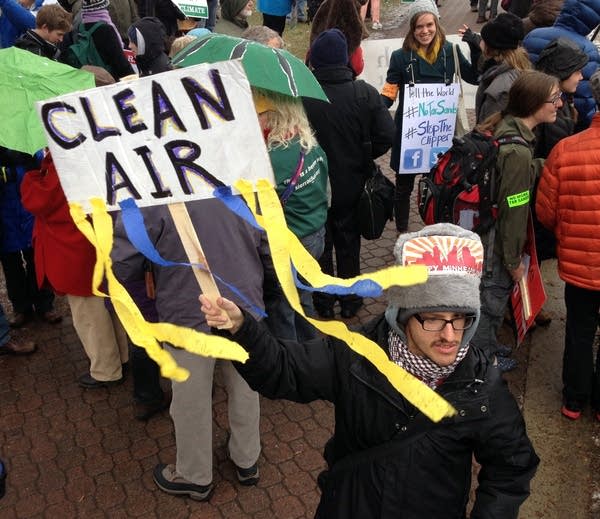The $24 trillion case for a strong, global carbon tax

Go Deeper.
Create an account or log in to save stories.
Like this?
Thanks for liking this story! We have added it to a list of your favorite stories.
The cost of climate change gets worse every year.
As the earth gets warmer and wetter, insurance rates increase and the government's financial burden gets bigger — as do our tax levels.
"In recent years you've seen sometimes hundreds of billions of dollars in damages that can be attributed to climate change," said Bob Litterman, a founding partner of the investment firm Kepos Capital and chair of its risk committee.
The damages include climate-fueled hurricanes, wildfires or rain storms.
Turn Up Your Support
MPR News helps you turn down the noise and build shared understanding. Turn up your support for this public resource and keep trusted journalism accessible to all.
He and two other experts put a dollar amount on the cost of inaction on fossil fuels in a University of Minnesota policy brief from earlier this year: $24 trillion for five years of delay.
In other words, the equivalent of a worldwide recession.
Litterman said a strong, global carbon tax could keep warming below 2 degrees Celsius from pre-industrial levels — but it needs to happen now. In fact, he said current policies favor production and consumption of fossil fuels.
His policy brief suggests a $40-per-ton carbon tax could by 2030 reduce emissions to 63 percent of their 2005 levels.
If such a tax didn't go into place until 2030, a year scientists have identified as a likely climate tipping point, he said warming would exceed 2 degrees Celsius.
"That may not seem like a lot," Litterman said, "but given where we are today and what we're already seeing, for the people who are living, say, 40, 50 years in the future when we will hit those peak temperatures, another 3/10ths of a degree Celsius could mean a major difference in their world."
Use the audio player above to hear the entire Climate Cast segment, including a Climate Story from Humphrey School of Public Affairs student Elizabeth Arnold.



